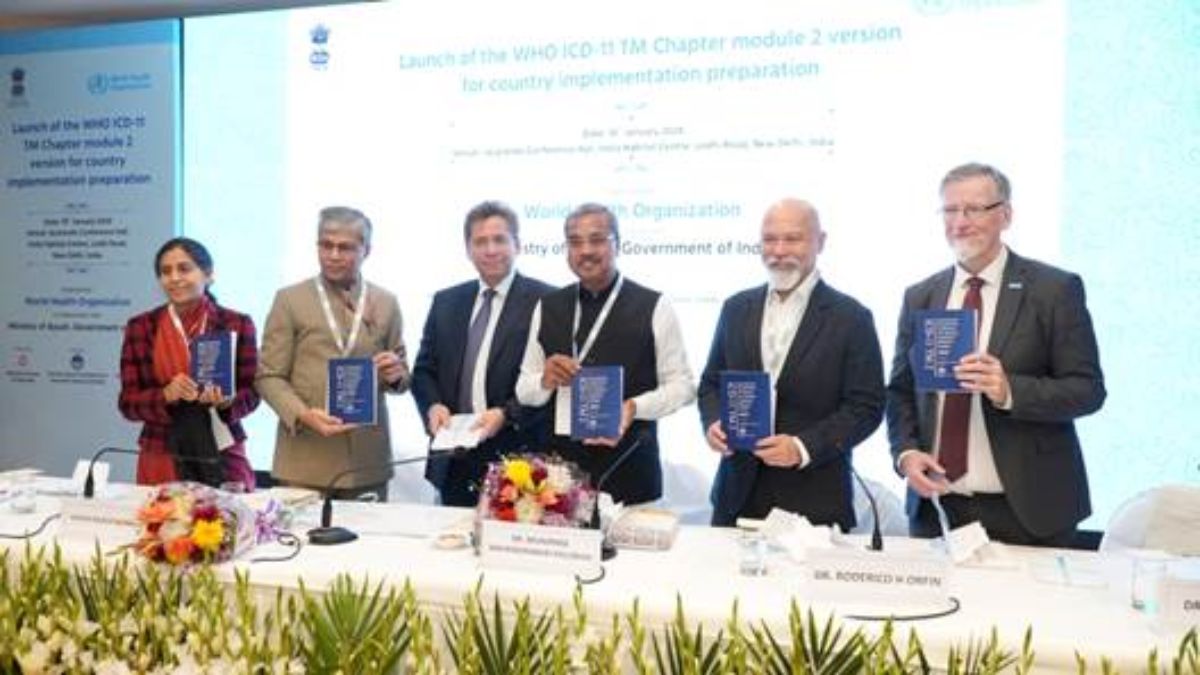New Delhi: The World Health Organization (WHO) has initiated the implementation preparations for the recently launched Traditional Medicine Module 2 (TM-2) of ICD-11. In this module, data and terminology related to diseases based on Ayurveda, Siddha, and Unani Medicine have been incorporated into the WHO ICD-11 classification. This effort involves indexing the terminology defining diseases in Ayurveda, Unani, and Siddha medicine as codes within the WHO Disease Classification Series ICD-11.
In collaboration with the World Health Organization, the Ministry of AYUSH has developed a disease classification for Ayurveda, Siddha, and Unani systems under the TM-2 module of the ICD-11 series. A Donor Agreement was earlier signed between the World Health Organization and the Ministry of AYUSH for this classification.
The anticipated outcomes include strengthening and expanding India’s healthcare delivery system, enhancing research, increasing AYUSH insurance coverage, fostering research and development, and refining the policy-making system. Additionally, these codes can be instrumental in formulating future strategies to control various diseases in society.
The launch of ICD-11, TM Module-2 at the India Habitat Centre witnessed Dr. Munjapara Mahendrabhai, Union Minister of State for AYUSH and Women & Child Development, emphasizing the need to modernize AYUSH medicine by integrating it with global standards in India and worldwide.
Vaidya Rajesh Kotecha, Secretary (AYUSH), stated that the Ministry of AYUSH would develop a public health strategy based on ICD-11, Module 2, and implement it nationally and internationally. The Secretary provided a detailed presentation on the journey of preparing TM Module 2 through a presentation.
The inclusion of traditional medical terminologies in ICD-11 establishes a connection between traditional medicine and global standards, according to Dr. Radarico H. Ofrin, WHO Representative to India. Dr. Sameera Asma, Assistant Director-General DDI, WHO, considers the indexing of disease terminology related to traditional medicine in ICD-11 as a milestone in building a unified global tradition.
Dr. Shyama Kuruvilla, Senior Strategic Advisor, WHO, joined the event online and expressed that the inclusion of traditional medical terminology in ICD-11 would further strengthen India’s routine health system. Dr. Robert Jacob, Head of Classification and Terminology Unit, WHO, mentioned that the data listed in ICD-11 would be available for global use.
Dr. Rudy Eggers, Director of Integrated Health Services, WHO, views the inclusion of TM Module 2 in ICD-11 as a movement alongside the global recognition of traditional medicine. The strategy for this initiative was developed from 2014 to 2023, and the first draft of the WHO strategy for Traditional Medicine for 2025 to 2034 has been prepared.
Representatives from member countries of WHO, including Brazil, Bangladesh, Malaysia, Mauritius, Sri Lanka, Nepal, Iran, and Britain, shared their experiences regarding the current status of Traditional Medicine in their respective countries.
The event was attended by senior officials of WHO and the Ministry of AYUSH, including senior-most officials of its research councils, national institutes, Chairmen, and concerned Presidents in two commissions, the National Commission for India’s system of Medicine, and the National Commission for Homoeopathy. Representatives of WHO Member States and senior officials from the Ministry of Health and Family Welfare were also present in the deliberations. The welcome address was given by Kavita Garg, Joint Secretary, Ministry of AYUSH.


